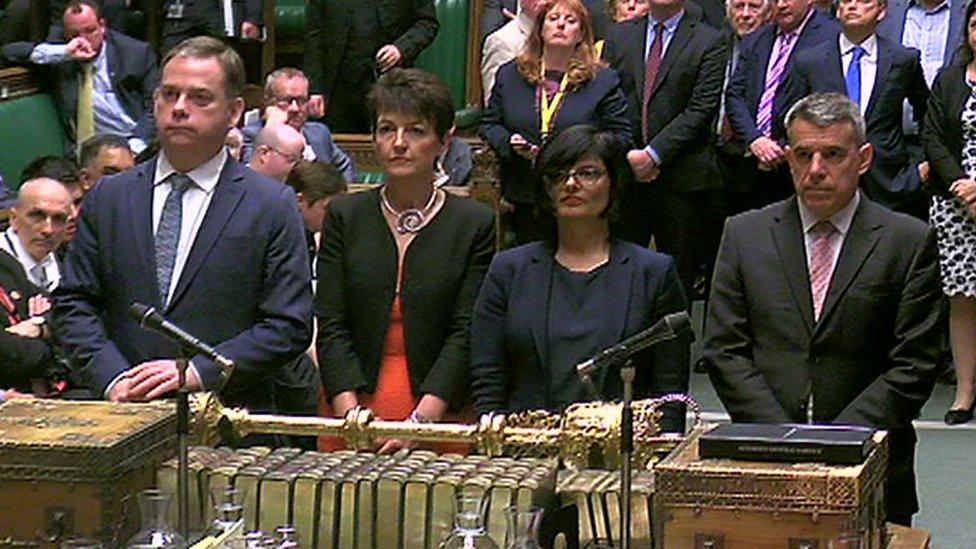Scottish MPs say their voices on Brexit have not been heard
- Published
- comments
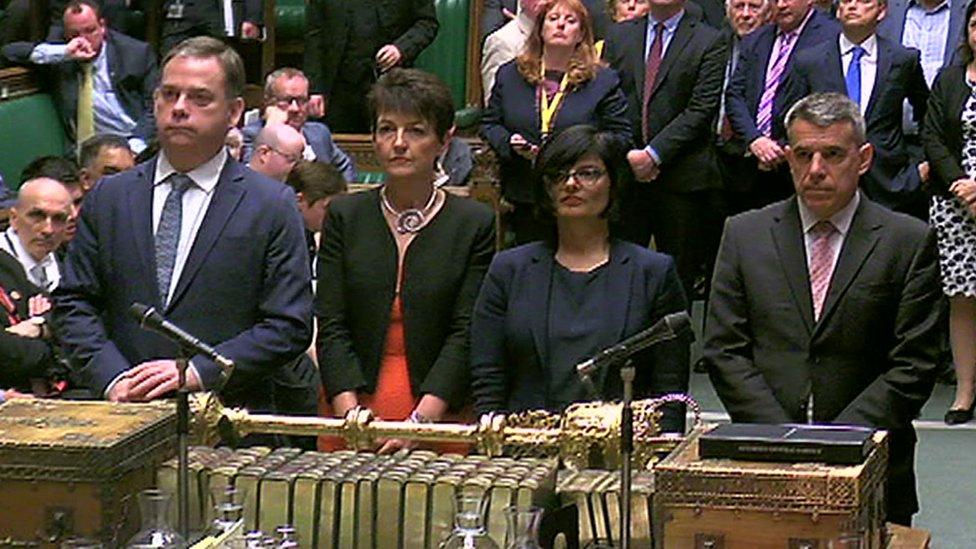
The UK government won the key vote by 324 to 298
Scottish MPs have insisted their voices have not been heard following the failure to reach a deal over the EU Withdrawal Bill.
MPs are debating changes to the Brexit bill as ministers seek to reverse defeats in the House of Lords.
Holyrood has not backed the bill but there was little time on Tuesday for MPs to discuss their concerns.
The SNP's leader at Westminster Ian Blackford described the lack of debate "a democratic outrage".
Scottish Labour's Ian Murray accused the UK government of failing to provide adequate time.
But Scottish Secretary David Mundell insisted the voices of the people of the UK as a whole had been listened to and acted on.
Mr Mundell said he was "very disappointed" by the lack of devolved consent, but insisted that "the bill can prevail without it".
The Scottish government, however, says its wants changes to the devolution settlement.
MPs are debating the EU Withdrawal Bill, the UK government's flagship piece of Brexit legislation, across two marathon sessions on Tuesday and Wednesday.
The SNP's Ian Blackford said the lack of debate time about devolution and Brexit was a "democratic outrage"
The government saw off a move to give MPs the decisive say on what happens over Brexit if they do not agree with the deal it negotiates, winning the key vote by 324 to 298.
Devolution was to be debated in the second half of Tuesday's session, but there were only a few minutes left for this after voting on amendments went on for almost three hours.
The SNP's Westminster leader Ian Blackford told the BBC's Good Morning Scotland programme: "We were continually promised by David Mundell, the Secretary of State for Scotland, that he would bring forward amendments, that we would have debate in the House of Commons.
"What happened last night was a democratic outrage. Without debate, without the voices of the Scottish MPs being heard, the government pushed through these amendments to rip out the powers from the Scottish Parliament."
Labour's Ian Murray believed the UK government tried to put pressure on opposition parties not to vote in the Brexit debate
Scottish Labour's Ian Murray dismissed claims that the lack of debate time was a failure of the House of Commons system.
He said on Good Morning Scotland: "It wasn't adequate. The government are completely in charge of the timetable. They could have given us 20 days or 100 days to debate this.
"This isn't a failure of Commons Standing Orders or a failure of the system - it's a failure of the government to provide a proper programme motion for debate."
Scottish Secretary David Mundell said it was "very regrettable" that MPs from Scotland had a limited time to speak in the Brexit debate
The Secretary of State for Scotland said it was right that the bill should not fall as a result of Holyrood failing to support it.
David Mundell said: "Ian Blackford may see his role in discussions with Nicola Sturgeon to roll over and agree with her - I don't see it as my role.
"I see it as my role to stand up for the constitutional settlement that people voted for and that is that the Scottish Parliament does not have a veto over what happens in the rest of the UK."

How did we get here?
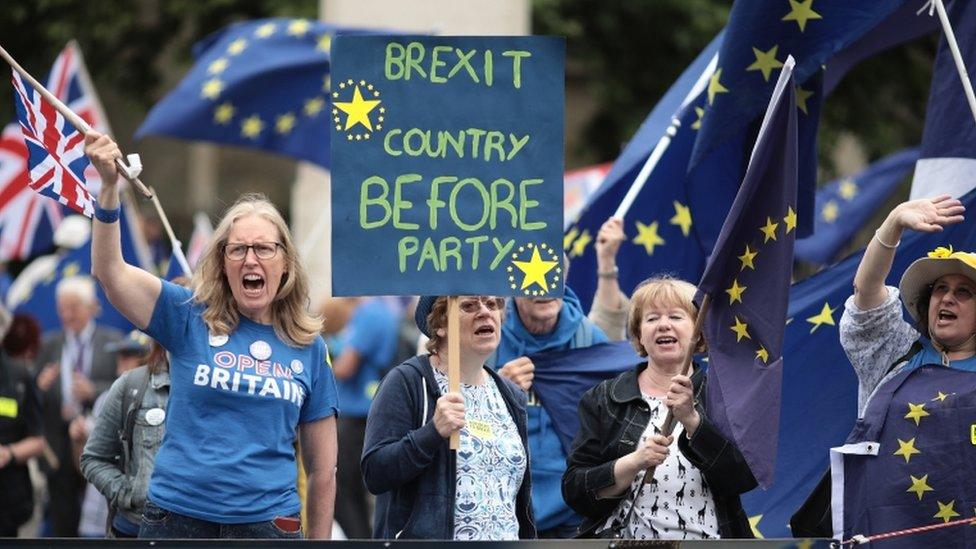
Anti-Brexit campaigners staged a demonstration at Westminster as MPs debated the bill inside
MSPs voted by a margin of 93 to 30 to refuse consent for the Brexit legislation last month, with Labour, the Greens and Lib Dems backing the SNP in the final vote.
It followed a lengthy row between the Scottish and UK governments about how powers coming back from Brussels after Brexit will be used.
Changes have been made to the bill to reflect a deal struck between the UK and Welsh governments, but Mr Russell says these do not go far enough.
First Minister Nicola Sturgeon wrote to the Speaker of the House of Commons, John Bercow, on Sunday urging him to let MPs "properly" debate devolved consent.
But with the UK government seeking to overturn many of the 15 defeats they suffered as the Withdrawal Bill passed through the House of Lords, there was ultimately little time for discussion of devolution.
This will be the first time since the Scottish Parliament was re-established in 1999 that Westminster will have legislated across a devolved matter without the consent of MSPs.

What is the Brexit powers row all about?
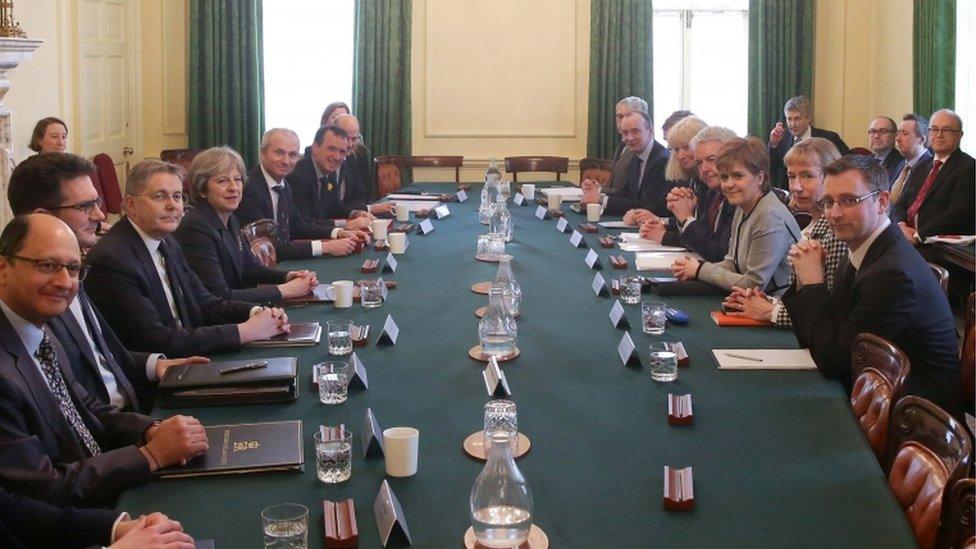
Months of talks between the two governments have failed to reach an agreement
The Brexit bill says that the "vast majority" of the 158 areas where policy in devolved areas is currently decided in Brussels will go directly to the Scottish and Welsh parliaments after Brexit.
But it has also named 24 areas where it wants to retain power temporarily in the wake of Britain's exit from the EU, including in areas such as agriculture, fisheries, food labelling and public procurement.
It says the "temporary restriction" on the devolved governments using some of the powers returning from the EU is needed "to help ensure an orderly departure from EU law" and allow the same rule and regulations to remain in place across the whole of the UK.
But the Scottish government argues that it would leave Holyrood unable to pass laws in some devolved areas for up to seven years.
It has produced its own alternative Brexit legislation, which was passed by MSPs in March but is currently subject to a legal challenge by the UK government.
- Published13 June 2018
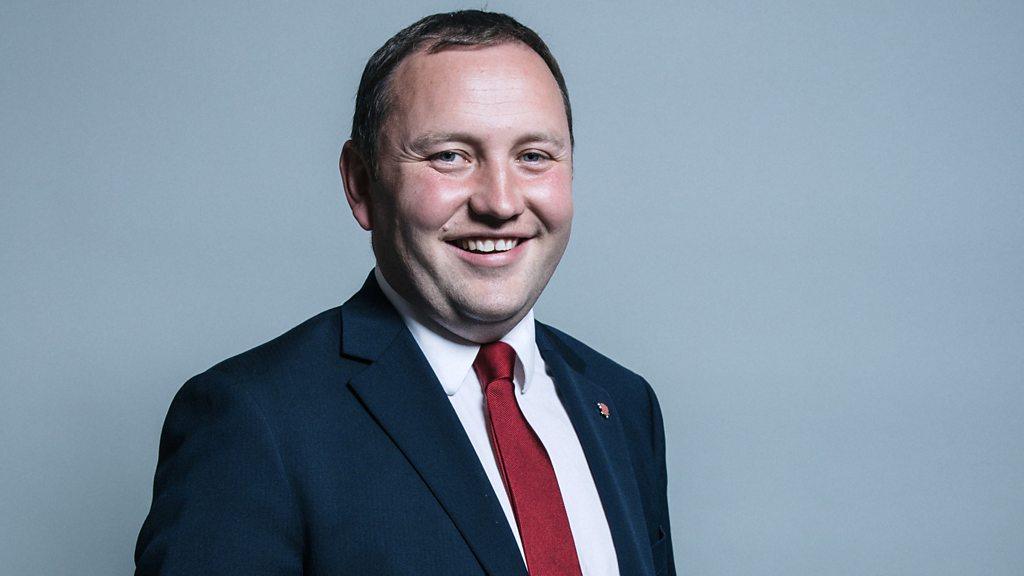
- Published13 June 2018
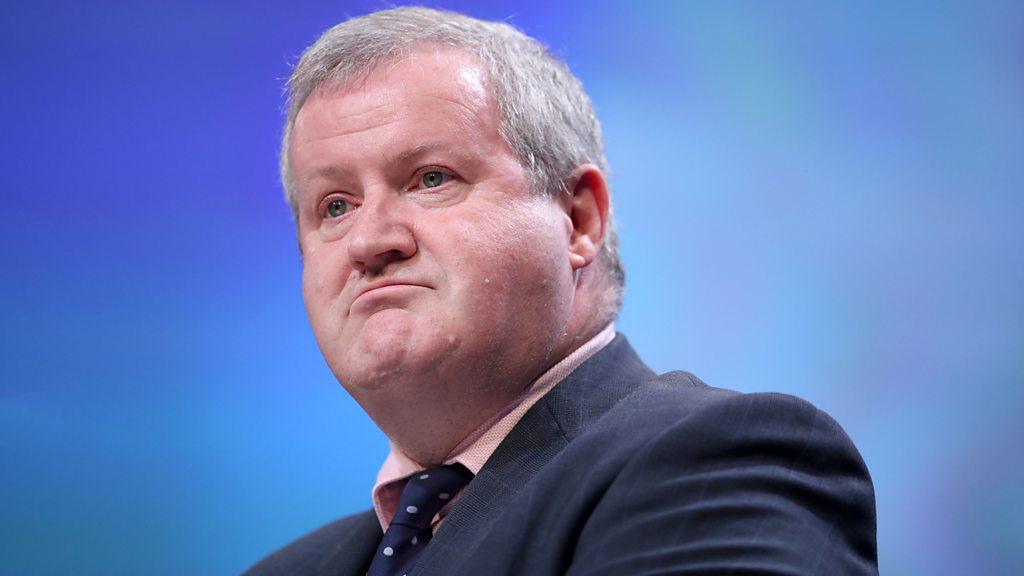
- Published13 June 2018
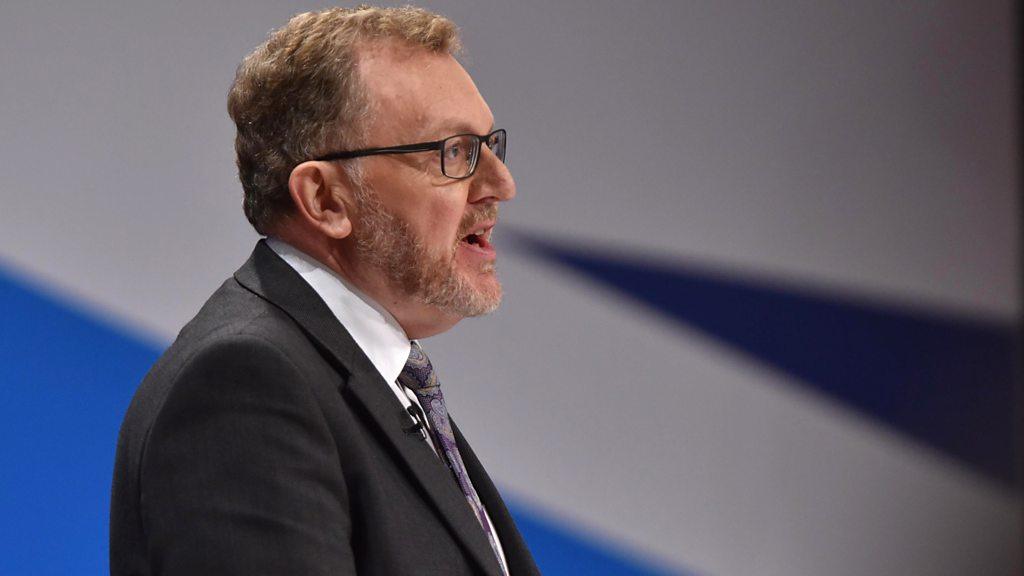
- Published12 June 2018
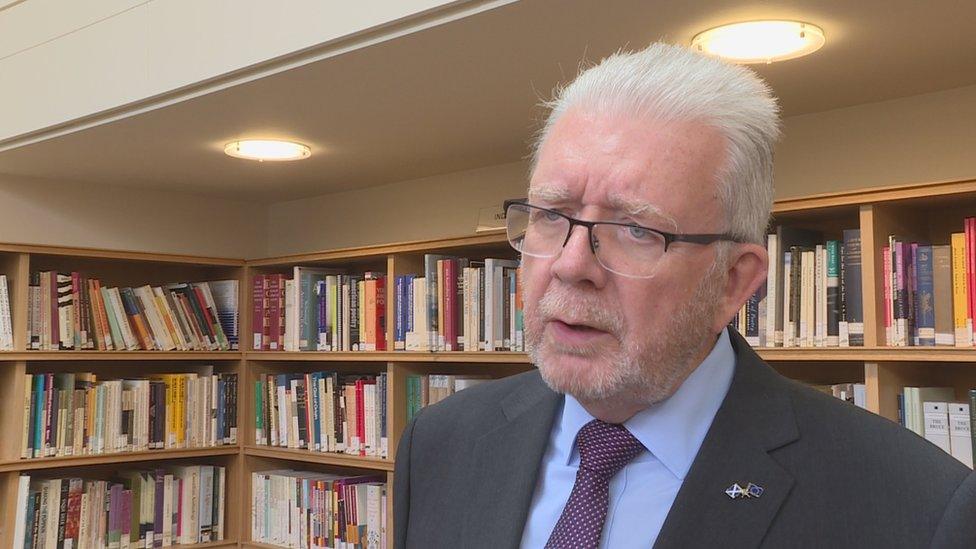
- Published12 June 2018
